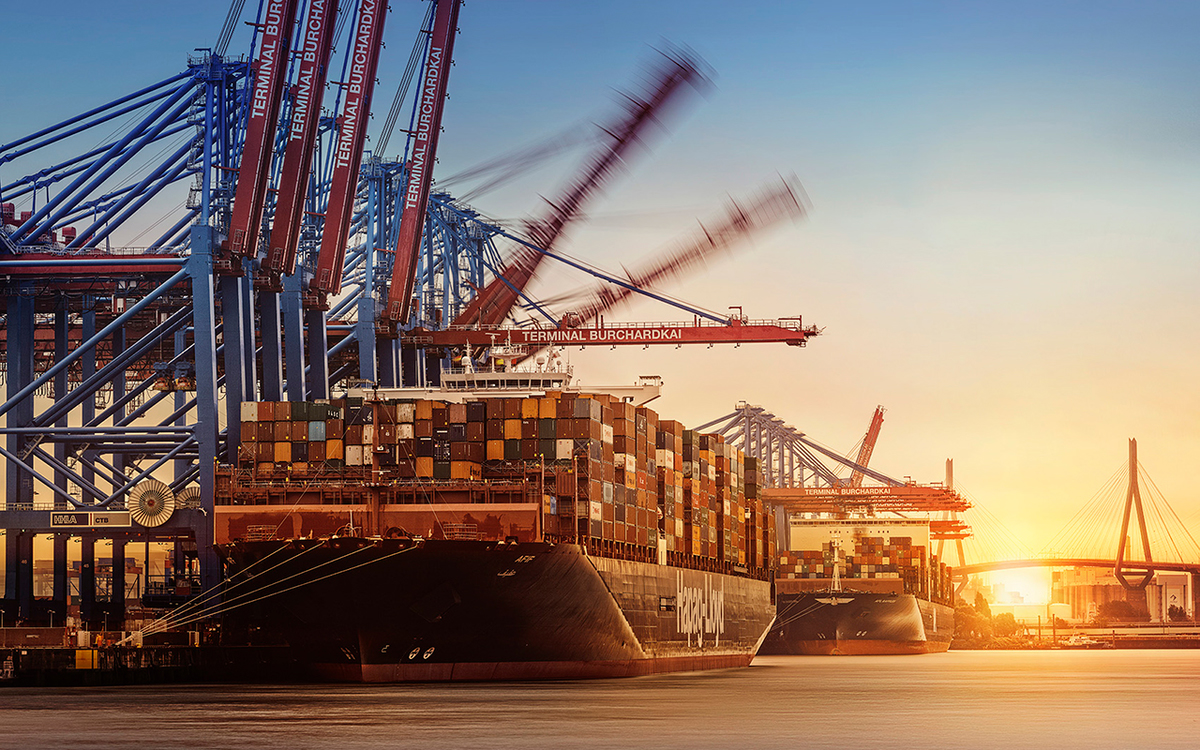DB Schenker opts for book-and-claim system to claim CO2 reduction
German logistics provider DB Schenker will use cargo shipping company Hapag-Lloyd’s book-and-claim system called Ship Green.
 PHOTO: Hapag-Lloyd's container vessel Afif docked at the Port of Hamburg in Germany. Hapag-Lloyd
PHOTO: Hapag-Lloyd's container vessel Afif docked at the Port of Hamburg in Germany. Hapag-Lloyd
The system will allow DB Schenker to book shipping services with Hapag-Lloyd and then claim emissions reductions through the use of used cooking oil-based (UCOME) biofuel across Hapag-Lloyd's entire fleet.
DB Schenker is expected to claim a reduction of around 3,000 mt of carbon dioxide equivalent (CO2e) emissions this year, for the use of least 1,000 mt of biofuel.
Alternative approach to lower CO2 emissions
“Ship Green’s impact is based on the “Book and Claim” approach,” Hapag-Lloyd has explained.
Book-and-claim is a type of supply chain model that allows shipowners to purchase emissions reductions from other shipowners that have already invested in low- and zero-emission fuels. By doing so, they will be able to balance out the emissions from their ships.
“This means that if you add Ship Green to your individual shipment, Hapag-Lloyd purchases biofuel and adds it to selected vessels’ fuel mix. The resulting emissions avoidance is then allocated to individual shipments."
“Hapag-Lloyd ensures that it has burned the respective amount of biofuel necessary to execute the service and thus saves emissions directly within its fleet,” the company claims.
Book-and-claim is currently in practice in the sustainable aviation fuel (SAF) industry. SAF suppliers, including BP and SkyNRG, provide customers with book and claim benefits. Some shipping companies and industry alliances like Global Maritime Forum are advocating a book-and-claim system to foster zero-emission shipping.
Cost of avoiding emissions
Keeping emissions under control will cost $51-551/TEU for 100% avoidance, $26-276/TEU for 50% abatement and $13-138/TEU for 25% abatement – with B100 (100% biofuel) priced at $1,358/mt, according to Hapag-Lloyd.
It also claims to be exploring bio-LNG, green methanol and ammonia as potential fuel sources for reducing emissions further.
By Konica Bhatt
Please get in touch with comments or additional info to news@engine.online






